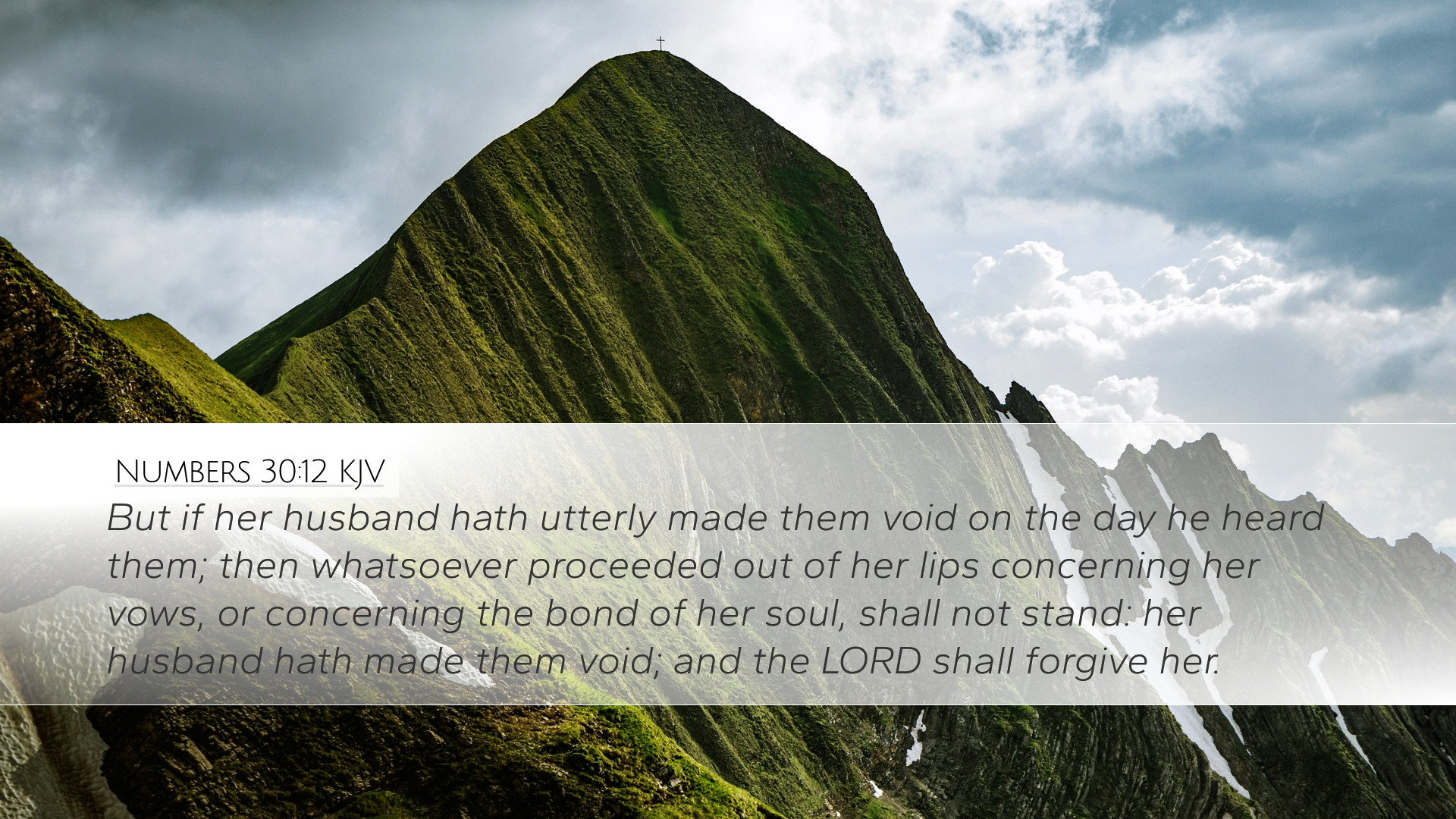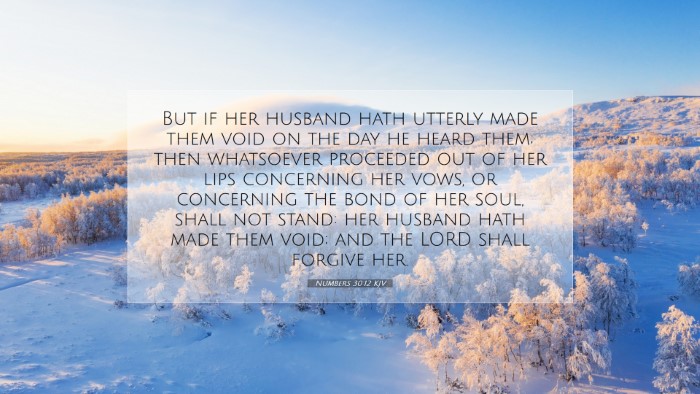Numbers 30:12 - Commentary Summary
Verse: "But if her husband has made them void on the day he heard them; then he shall bear her iniquity."
Context and Overview
Numbers 30 deals with the vows made by individuals in Israel, particularly focusing on the vows of women and the extent to which these vows can be upheld or nullified by their fathers or husbands. The passage draws attention to the authority of men in the family structure and underscores the serious nature of vows in the Jewish tradition.
Matthew Henry's Insights
Matthew Henry emphasizes the significance of vows made to God, reflecting a deep commitment and the desirability of keeping such commitments. In this verse, he notes the husband’s role as a protector and provider who has the authority to nullify his wife’s vows if he believes it is not in her best interest. It illustrates the weight and seriousness of making vows, as well as the balance of authority within the marital relationship.
- Authority in Marriage: Henry asserts that the husband’s authority to annul vows calls for great responsibility. He should consider the spiritual and emotional wellbeing of his wife before making such a decision.
- Spiritual Implications: The husband’s decision not only impacts their immediate relationship but also carries spiritual implications; the vow may involve a promise before God.
Albert Barnes' Commentary
Albert Barnes provides additional perspective on the legal and spiritual ramifications of vows, emphasizing the potential consequences of a husband declaring a vow void. He points out that the husband's action highlights his responsibility for his wife’s spiritual commitments, leading to significant consequences in their relationship with God.
- Understanding Vows: Barnes interprets this as a reminder that those who make vows must be aware of their implications and should carefully consider the motivations behind them.
- Communication between Husband and Wife: The communication between husband and wife becomes crucial, as mutual understanding can help in determining whether a vow is beneficial or detrimental to the family unit.
Adam Clarke's Analysis
Adam Clarke highlights the aspect of personal liberty concerning vows. He asserts that while the biblical law provides for authority over vows, it does not diminish the importance of personal faith. This leads to the interpretation that husbands should exercise their authority with wisdom.
- Freedom in Vowing: Clarke suggests that the right to make a vow should not be taken lightly. One's personal commitment requires respect in a marital relationship, and such actions should not lead to conflict or oppression.
- Role of Grace: Clarke encourages understanding this authority through the lens of grace; the husband's authority is meant to safeguard, not control.
Theological Implications
This verse opens a dialogue on the interaction between divine law and human relationships, examining how vows are honored or annulled. The responsibilities placed upon husbands emphasize the need for balance and mutual respect in a marital relationship.
Applicational Insights
- Accountability: Believers are called to be accountable for their commitments, not just before God but in their relationships with others.
- Empowerment in Vows: This passage empowers both men and women to seek understanding, grace, and wisdom in the commitments they make.
- Family Dynamics: It encourages a healthy dialogue within family life regarding spiritual matters, highlighting the importance of unity in mind and spirit.
Conclusion
The teachings arising from Numbers 30:12 reveal invaluable lessons about authority, commitment, and grace within relationships. As observed in the commentaries of Henry, Barnes, and Clarke, understanding the implications of our vows in the light of our spiritual commitments is essential for every believer. They encourage us to approach personal vows cautiously and highlight the crucial dynamic of mutual respect and understanding in relationships.


